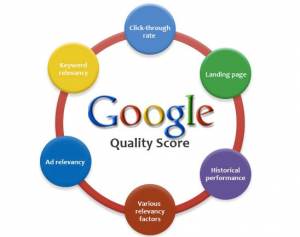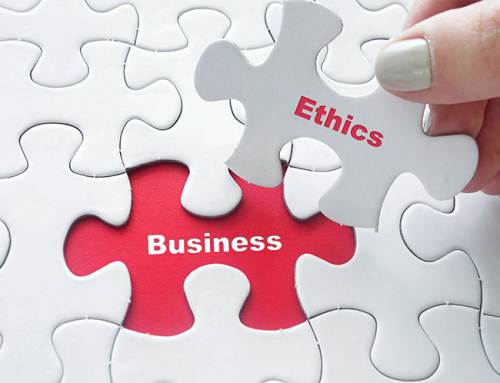 Any website owner with an interest in SEO might be wondering what the meaning behind certain search engine optimisation terms are, how do they impact on my website rankings and what can I do to improve them and one such question concerns how domain authority and SEO affect one other?
Any website owner with an interest in SEO might be wondering what the meaning behind certain search engine optimisation terms are, how do they impact on my website rankings and what can I do to improve them and one such question concerns how domain authority and SEO affect one other?
Whilst there are thousands of factors that Google and other search engines collectively use to determine the search engine ranking of a website, two interconnected terms that have taken on great importance over the years are domain authority and the page authority of a website.
Domain Authority put simply is a ranking method (from Moz), which is a bit like the now defunct Google PageRank in that it gives an indication of how well your site will perform in the search engines.
Domain Authority works on a predefined algorithm which scores your website 1 out of 100 (the higher the better) and even though the MOZ Domain Authority doesn’t directly have any active role in ranking you higher in the search engines, it is a very good indicator that you can use to help improve your site as it was based upon the same trust and ranking signals that Google PageRank was.
How Google assesses the ‘authority’ of web sites & pages
Google’s fight against problematic and spammy content has drawn renewed attention to a common question that is of huge significance to good and bad SEO’s alike in that: how does Google know what’s authoritative?
Whilst Google has no single authority metric but rather uses thousands of signals in its algorithms (and some 200+ semi confirmed signals to most SEO’s) to determine authority on a page-by-page basis the old adage rings true in that the offline principles of trust and quality apply just as equally online. As such. when it comes to rankings and search engine optimisation, domain authority and SEO are massively interlinked in that a trusted website will outrank a non trusted website, all other things being equal.
If all you have for a website is thin, copy and pasted content and links from spammy websites Google will see through this in a heartbeat and your efforts will be wasted and seen as ‘untrustworthy’ so why not try and improve your website, its design, how fast it loads, reduce the bugs and improve how its received by visitors by adding engaging content that your visitors will appreciate from the outset and hopefully will attract natural links and in doing so work towards building trust and domain authority.
Marketing tells us to stand out from the crowd but all you are doing with low quality content (and links etc) is digging yourself deeper into the crowd and this low quality / low trust is what sees both your domain authority and seo mirror one another.
Quality & Authority
When Google first began, it used a well known ranking tool called PageRank which was all about looking at links to pages the composition of those links and where they came from and in turn it tried to calculate how important those giving the links were and so on and so on.
Calculating authority today has been built upon and whilst PageRank no longer exists it was part of the genesis of how Google now ranks your domain authority and SEO today as whilst links and content are still among the most important ranking signals Google uses other elements such as Google’s A.I. is a major addition to continually refine and improve the process to reward quality and keep down mediocrity.
Google rarely reveal inner secrets but they do give some feedback now and then as their mission to deliver quality content is aided if content makers are on the same page as Google and Paul Haahr, one of Google’s senior engineer recently commented, “We have no one signal that we’ll say, ‘This is authority.’ We have a whole bunch of things that we hope together help increase the amount of authority in our results. Our goal in all of this is that we are increasing the quality of the pages that we show to users. Some of our signals are correlated with these notions of quality,”
One of the ways it hopes to improve that mix is with feedback from the new quality raters that it employs, who were recently given updated guidelines on how to flag low-quality web pages and teach the A.I. to be more effective but as always the tell tale signs of low quality have and will likely remain factors such as, have you copy and pasted content from elsewhere? Have you paid for links to your website?
Whilst Google has a duplicate content filter to weed out poor quality content the signs for low quality links are just as easy to determine as any links from link farms or out of context links from high spam sites in regions such as Asia and Eastern Europe are child’s play for the Googlebot to discover.
Page v Domain Authority
Google says authority is done on a per-page basis. In particular, it avoids the idea of site-wide or domain authority because that can potentially lead to false assumptions about individual pages, especially those on popular sites. To clarify this further Google’s Haahr used the following example, “We wouldn’t want to look at Twitter or YouTube as, ‘How authoritative is this site?’ but how authoritative is the user on this site,”
That’s not to say that Google doesn’t have site-wide signals that, in turn, can influence individual pages. How fast a site is or whether a site has been impacted by malware are two things that can have an impact on pages within those sites.
So how does this effect my SEO?
The long and short of domain authority and SEO is that if you try and cheat the system you risk being penalised and the penalties involved here are the proverbial room 101 for your website.
Like doping in sport, whilst the cheaters may have an edge today that is yet to be curtailed, eventually it will and if your business isn’t a fly-by-night operation and you want to stick around for the long term, ask yourself what being banished would do to your business and if the risk it too great then use qualitative tactics from a good practitioner such as Edible.
Edible is a UK focused SEO, Marketing and Reputation Management Consultancy working with a broad base of business to business and business to consumer clients across many industries such as retail, hospitality, manufacturing, research and financial services.
For SEO Liverpool, SEO London or other Geographic SEO services further afield simply get in touch for a non obligation evaluation of your website and its potential.





